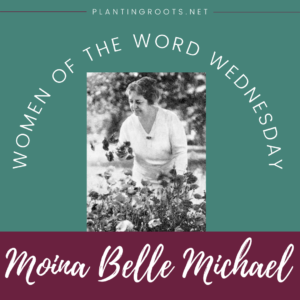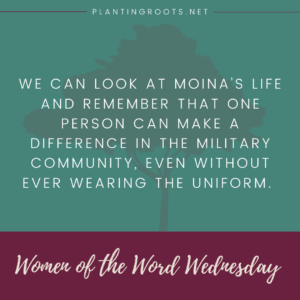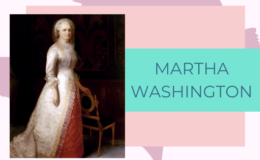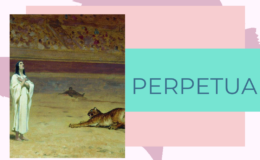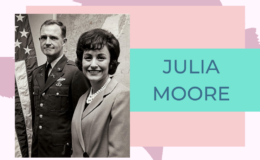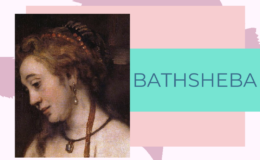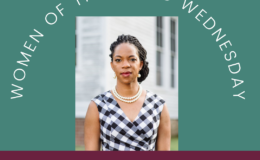There a some people that make a difference in military life without ever donning a uniform. This is the case for Moina Belle Michael, the Ivy League-educated military child and wartime volunteer who became the Poppy Lady.
Moina Belle Michael: Military Child, Wartime Volunteer, and Poppy Lady
by Morgan Farr
Military Child
Moina Belle Micheal grew up during Reconstruction in Georgia. Reconstruction was the period after the Civil War when the United States was recovering from the devastation of the war and trying to integrate simultaneously. It was a difficult period with a great deal of uncertainty economically and politically.
The Civil War ended in 1865, just four years before Moina was born. Her father, John Michael, fought for the Confederacy, making Moina a military kid. Her wealthy family allowed Moina many advantages, like attending boarding school. When Moina came home from her third year away, she found that her community was struggling. Reconstruction was a challenging time in the south, and drought had hit her community in addition to the political and economic challenges.
The Ivy League
Moina’s mother encouraged her to fill the teacher position in their community since the drought had removed their ability to pay for one. Moina cleaned out an abandoned slave cottage on the family’s plantation to use as her school building. Moina would teach in many local schools for the next twenty years, enroll in classes at Columbia University, and eventually be a professor at State Normal School, which worked closely with the University of Georgia.
Through the university, Moina wound up with a front-row seat to the start of World War One.
Wartime Volunteer
When war broke out in Europe in August of 1914, Moina was there for a university-led event; instead of panicking or fleeing immediately, Moina met a need. She volunteered as a secretary for an emergency committee that helped stranded Americans get home.
Moina eventually sailed home to New York aboard the Carpathia, famous for rescuing survivors of the Titanic in 1912.
Once back in the United States, Moina volunteered for the war effort. She volunteered as a YMCA war worker in 1918, working without pay while taking leave from her job, to coordinate for fallen soldiers to be transported from New York to their hometowns.
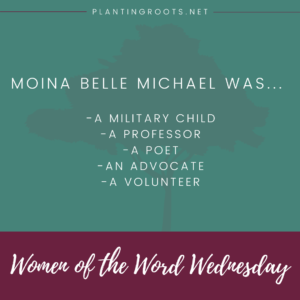
The Poppy Lady
Just before the end of the war, Moina read an issue of The Ladies Home Journal while sitting in her office at Columbia. Inside was the poem “We Shall Not Sleep” by Canadian soldier and surgeon, John McRae. The final verse of what would later be named “In Flanders Fields” stuck out to Moina and became the inspiration for our current symbol to remember the fallen: the poppy. Moina vowed to always wear a red poppy to remember the fallen of World War One.
Moina bought the first twenty-five poppies and then started making them. She enlisted friends and colleagues to get involved. Word spread rapidly, and by 1919, the Flanders Fields Memorial Campaign had taken off.
Eventually, the poppies would be made by disabled veterans. The profits from selling the poppies went directly to veterans of World War One or the dependents they left behind. By the time of Moina’s death in 1944, $200 million had been raised for her cause. Moina was given a military funeral. Service members across the nation mourned the loss of this great lady by making 3,223 poppies and weaving them together as a blanket which they placed on Moina’s grave.
So What?
Moina Belle Michael spent the second half of her life working to care for veterans and helping others to remember the fallen. Her legacy endures today. The poppy is still the symbol of remembrance and is worn in hopes of a peaceful future. As Veteran’s Day just passed, we can look at Moina’s life and remember that one person can make a difference in the military community.
Closing Prayer
Heavenly Father, thank you for Moina Belle Michael and the reminder that she left us. Help us to honor the fallen and to live a life worthy of their sacrifice.
Resources
- Read this post to find out why we care about Christian women in military history
- Read our Women of the Word Wednesday posts here!
- You can find more WOTWW content on our Deeply Rooted Podcast.
- Poppies to Remember
- MOINA BELLE MICHAEL
- Moina Poppy Project
- The Poppy Lady
- The Poppy What It Is All About
- AIB Presents The Poppy Lady

